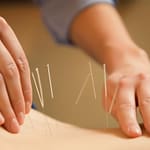Spinal Cord Cells Control Pain
Spinal cord cells are responsible for controlling pain and itch, according to research published in the journal Neuron. Researchers from the University of Zurich used genetically modified viruses to interfere with the functions of neurons in mice in order to investigate how neurons contribute to pain and itch processing. The researchers drew on prior findings […]
 Skip to content
Skip to content

